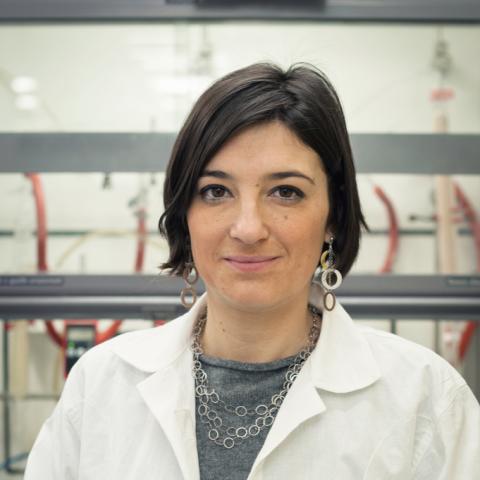Event
Valentina Cauda Wins the USERN Prize in 2017 in Biological Sciences

I am trying to develop smart particles to detect cancer and I hope in future we have a real and clinical solution for this. I also hope this prize with inspire with inspire all young students here to continue to work and do the best of their research" -Professor Valentina Cauda
Professor Valentina Alice Cauda Won the USERN Junior Prize in 2017 for Her Significant Contribution to Biological Sciences. The following article is an overview of her past and present scientific achievements earning her the USERN Prize of 2017
The USERN Prize is an international and independent prize aimed to identify young scientists on the verge of their carrier, those who have contributed to their field with significant scientific projects, human endeavours and exceptional talent, under age of forty. Professor Valentina Alice Cauda took the title for USERN prize 2017 biological laureate with "Hybrid immune-eluding nanocrystals as smart and active theranostic weapons against cancer -TrojaNanoHorse ". According to the home page at Politecnico di Torino, Valentina Cauda is Associate Professor at the Department of Applied Science and Technology of the Politecnico di Torino, Italy since May 2016. She has received her Ph.D in Material Science and Technology in 2008 from the same university. She also has been Senior Post-Doc at the Istituto Italiano di Tecnologia in Turin, Italy. For her research results she received in 2010 the prize for young researchers at the Chemistry Department of the University of Munich, in 2013 she got the Giovedì Scienza award, in 2015 the Zonta Prize for Chemistry, and finally the European Research Council Starting Grant entitled “TrojaNanoHorse”. Abstract of her scientific project that came into view by the USERN board of biological science referees reads:
"Nanomedicine tools for cancer treatment comprise many nanosized systems, so far developed with smart functions such as efficient drug delivery and cell targeting abilities. However they remain still under-characterized in terms of immunogenicity, potential toxicity due to the materials itself or the unwanted release of drugs. To overcome these challenges this project aims to develop a new generation of multifunctional therapeutic and diagnostic (thus theranostics) nanosystems displaying non-immunogenicity, improved cancer treatment, cell imaging, and high safety for the hosting organism. The innovative concept behind this approach relies on a TrojaNanoHorse (TNH) system, here validated against leukaemia. The injectable TNH have a biomimetic non-immunogenic shell. Studies will show the intrinsic therapeutic activity of the nanocrystalline core for cancer killing, without the use of chemotherapeutic drugs, and its light emission. The hemocompatibility, anti-thrombogenicity, and targeting ability toward malignant blood cells will be proved during this project. The whole TNH would go beyond the state-of-the-art due to its biomimetic shell, absence of drugs, its safety and biodegrading fate, and light emissions for diagnosis. This project will also develop novel set-up for based therapy and diagnosis, impacting on future technology, new standardized protocols for nanomaterial safety assessment, and study chemical and biological mechanism of cancer cell killing. Achieving the ultimate goal of a multifunctional TNH will require multidisciplinary expertise in chemistry, material science, biology, medicine and engineering, opening new horizons as nanomedicine tools for efficient cancer therapy with strong scientific, technological and socio-economic benefits"
Professor Valentina Cauda in Receiving the 2017 USERN Prize in Biologica Sciences, November 10th, Karazin University, Kharkiv, Ukraine
"I’ve started with a chemical engineering degree [...] and today I received a prize in biology, so I think this states that I work in a field which is a very multidisciplinary field. I am trying to develop smart particles to detect cancer, this is a research work highly demanding and challenging and I hope in future we have a real and clinical solution for this. I also hope this prize with inspire with inspire all young students here to continue to work and do the best of their research"
